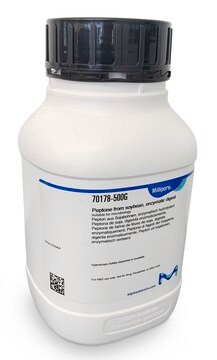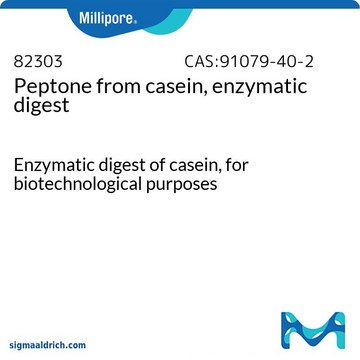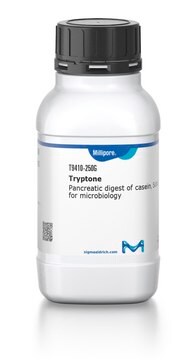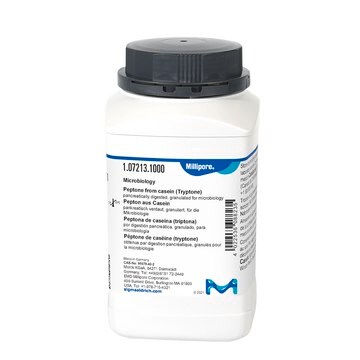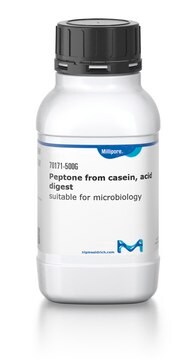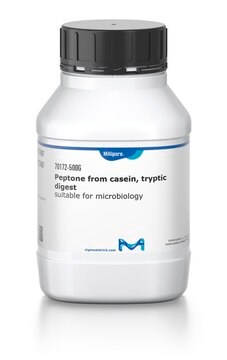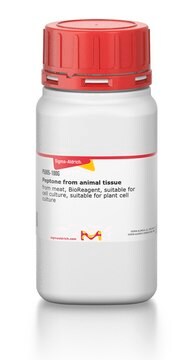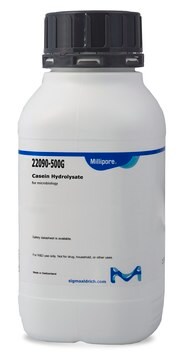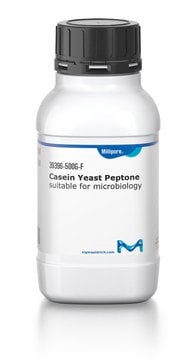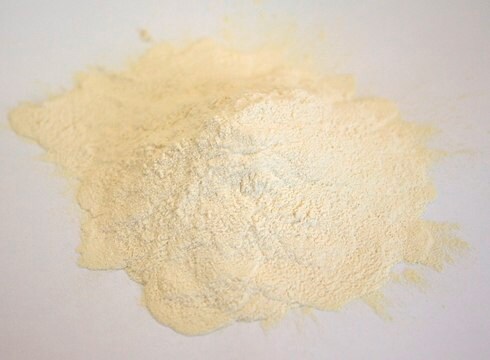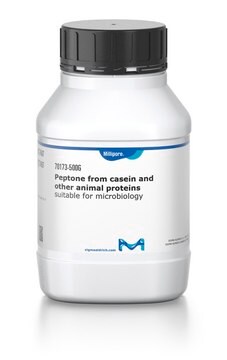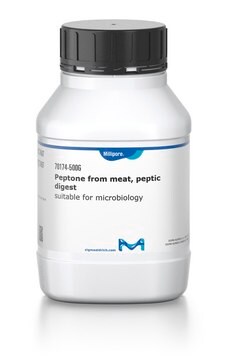70169
Casein Peptone
Enzymatic digest of casein from bovine milk, ≤6% loss on drying, suitable for biotechnology and microbiology
Synonym(s):
Peptone from casein, Peptone from casein, pancreatic digest
About This Item
Recommended Products
product name
Peptone from casein, pancreatic digest, Pancreatic digest of casein, suitable for microbiology
biological source
bovine milk
Quality Level
form
powder
composition
total nitrogen (N), ≥12%
ign. residue
≤10%
loss
≤6% loss on drying
pH
6.8±0.5 (25 °C, 2% in H2O)
solubility
H2O: 2%, clear, faintly to light yellow
application(s)
food and beverages
microbiology
Looking for similar products? Visit Product Comparison Guide
Related Categories
General description
Application
Storage Class Code
11 - Combustible Solids
WGK
WGK 1
Flash Point(F)
Not applicable
Flash Point(C)
Not applicable
Personal Protective Equipment
Choose from one of the most recent versions:
Already Own This Product?
Find documentation for the products that you have recently purchased in the Document Library.
Customers Also Viewed
Our team of scientists has experience in all areas of research including Life Science, Material Science, Chemical Synthesis, Chromatography, Analytical and many others.
Contact Technical Service